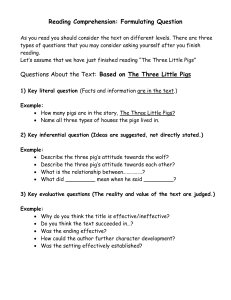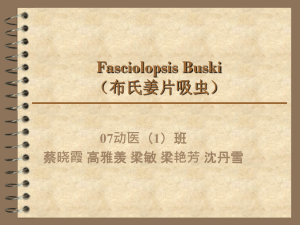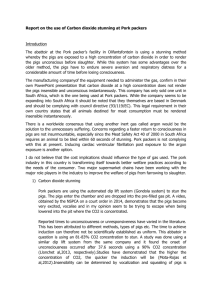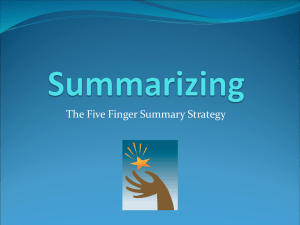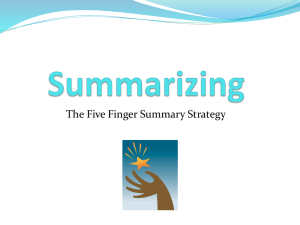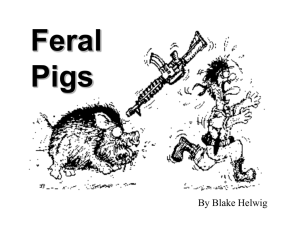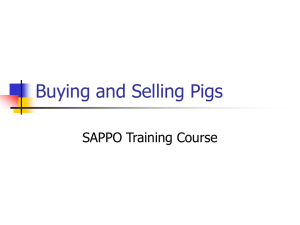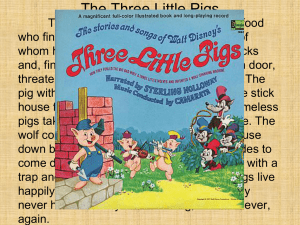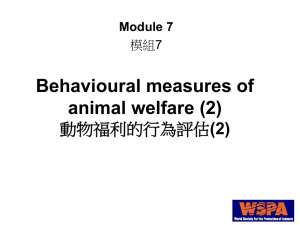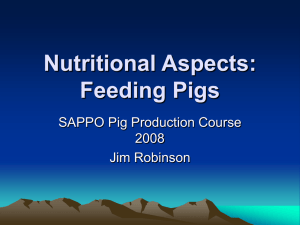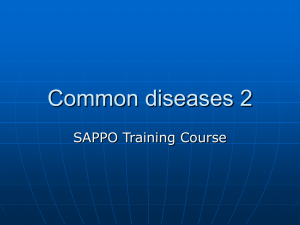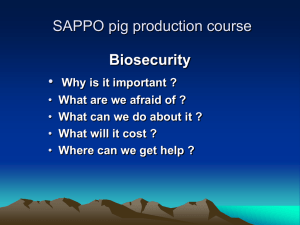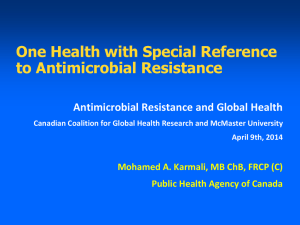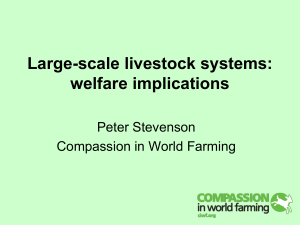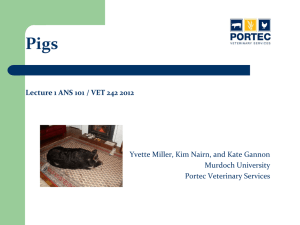Pig-welfare
advertisement
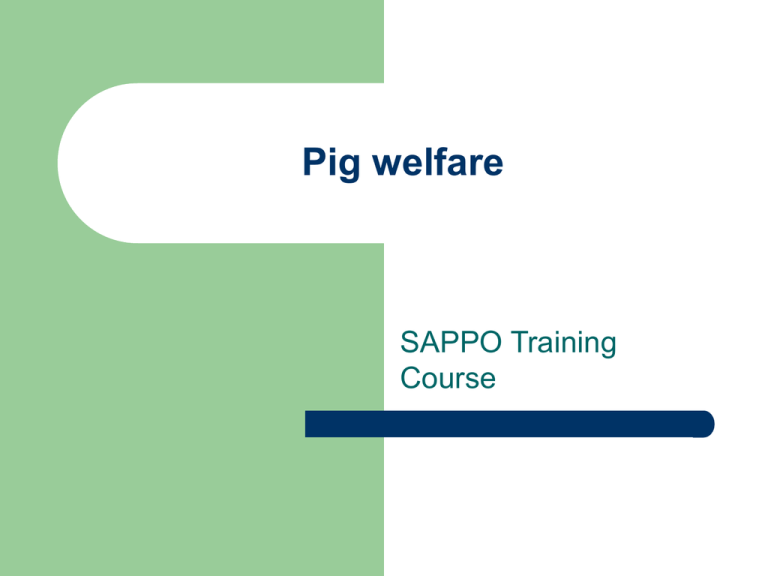
Pig welfare SAPPO Training Course South African Welfare Code The South African Welfare Code provides guidelines on how pigs should be treated Pigs should be: – – Free from thirst, hunger, pain, injury, disease, fear and distress Able to express the normal behaviour for pigs The Code is obtainable from the SAPPO offices: Tel. 012 361 3920 Why welfare is important Treating animals well is an expression of our humanity – treating them badly diminishes us as human beings Knowing that food animals have been well treated is increasingly important to consumers of meat Pigs that are well treated grow better, look better, taste better and fetch better prices Welfare requirements for pigs An adequate supply of nourishing food and clean water Sufficient living space to allow freedom of movement and behaviour Maintaining a good level of hygiene Handling pigs kindly, not hurting them unnecessarily Carrying out permitted procedures efficiently Food and water Food should be fresh, appetising and balanced in terms of nutrients Water should be clean, cool, and always available Sufficient living space Overcrowding causes discomfort and can stunt growth (above); pigs need space to stretch out and be comfortable Freedom of movement Pigs should not be tethered – it is cruel and illegal and can cause serious injuries Good hygiene Pigs do not like to be dirty – it is up to us to make sure they do not have to be. The conditions shown here are not acceptable Handling pigs kindly Pigs must not be beaten or lifted by the ears, foreleg, or tail only They respond well to kind handlers and perform better for them Permitted procedures Giving injections, ear-tagging/tattooing, treating wounds, trimming feet, helping sows with farrowing Piglets less than 7 days old: castration (tail docking and clipping teeth are permitted but not recommended) More details are given in the section on management Any questions?
